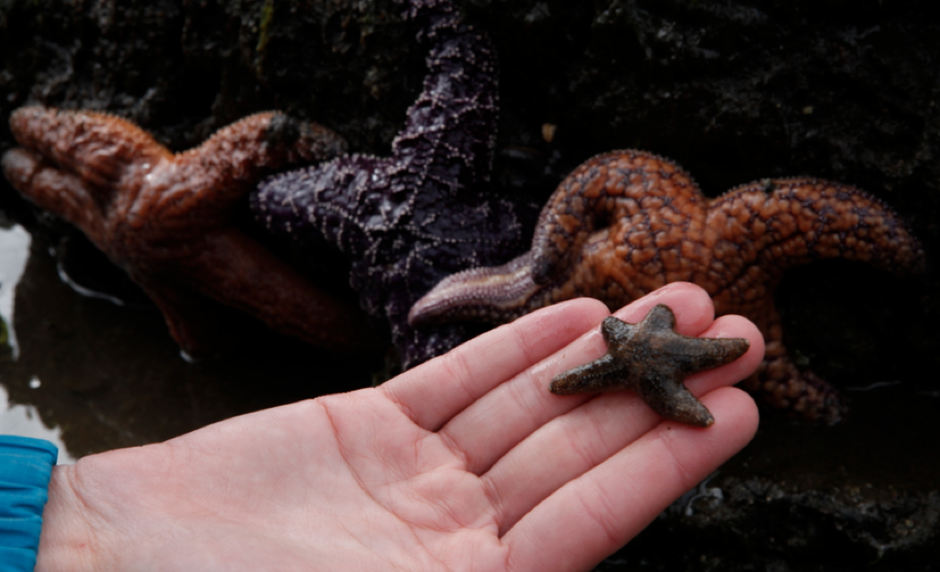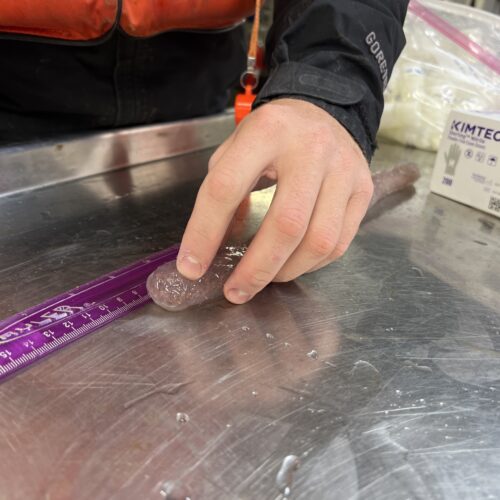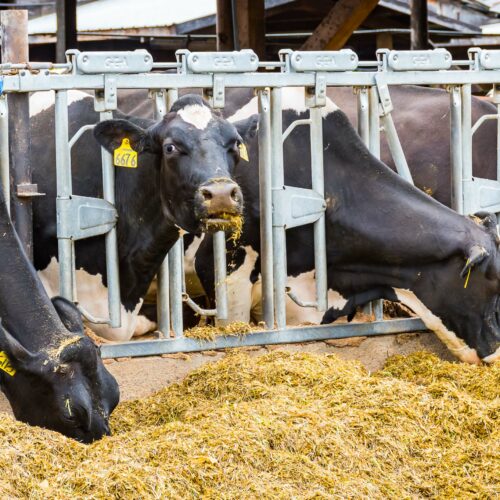
A Baby Boom Is Helping West Coast Starfish Recover After Die-Off
Scientists say a starfish populations are recovering from a devastating die-off with help from a massive baby boom.
A wasting disease in 2014 took an unprecedented toll on sea stars up and down the West Coast.
It nearly wiped out the populations of starfish ecologist Bruce Menge has studied for decades with Oregon State University.
Then the babies started coming.
“To find one of these tiny sea stars was always sort of an exciting event because it was so rare,” Menge said. “But in the spring and summer of 2015, most sites had lots of tiny little sea stars.”
At one site, he counted hundreds of baby starfish in an area no bigger than his handprint. Now, those babies are getting bigger.
“The babies have grown into juveniles and continue to grow at actually a pretty fast rate,” he said. “When the animals mature to adulthood, chances are the numbers will actually be higher than they were before the disease.”
Menge said he still sees signs of the wasting disease in adult starfish, but it’s much less common than before.
New research suggests the new sea star populations may be evolving to promote genetic resistance to the virus causing the wasting disease.
“Most of the babies seem to have survived, so maybe there was selection at the stage of the larvae,” Menge said. “The ones that settled and survived were the ones that were resistant.”
Researchers still can’t explain exactly what caused the massive die-off, though they think it could be linked to climate change.
“These are things we’ve never seen in multiple decades of research,” Menge said. “This recovery we think we’re seeing is very helpful, but you’re always a little worried because suddenly the system seems much more variable than it was before.”
Copyright 2018 Oregon Public Broadcasting
Related Stories:

Power utilities say Northwest region needs to better prepare for extreme cold
A wind farm. (Credit: Roberta Schonborg / Flikr Creative Commons) Listen (Runtime 1:00) Read Looking back on this past winter, some Northwest utilities have noticed they were really close to… Continue Reading Power utilities say Northwest region needs to better prepare for extreme cold

Pickle-shaped sea creatures popping up along the NW coast, why it’s important
Scientist Kris Bauer measures a pyrosome that was caught in a net aboard the Bell M. Shimada in May 2022. (Credit: Courtney Flatt, Northwest News Network) Listen (Runtime 0:59) Read… Continue Reading Pickle-shaped sea creatures popping up along the NW coast, why it’s important

Art exhibit showcases the beauty of the mighty Columbia
Hat Rock, 2022, acrylic on panel, by Erik Sandgren (American, b. 1952) is on display at the Maryhill Museum until Nov. 15. (Courtesy: Maryhill Museum) Listen (Runtime 0:56) Read The… Continue Reading Art exhibit showcases the beauty of the mighty Columbia















